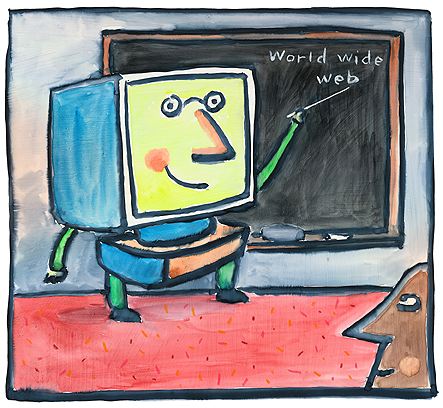Virtual Schools, Real Profits, Troubling Results
Follow me on Twitter at @AnthonyCody
Private enterprise is often portrayed as a mighty engine of innovation. If we break the "government monopoly" on education, entrepreneurial opportunities will inspire new solutions to problems that have not been licked by the public schools.
But corporations are funny people. They do not actually care so much about how they make money - just so long as they do. Innovation is not their purpose, nor is solving society's intractable problems.
We have a fresh report from the National Educational Policy Center, where authors Gary Miron and Jessica Urschel take us into the world of K12 Inc, the nation's largest "virtual school provider." They look at the characteristics of the students, at the quality of the instruction they receive, and the outcomes that result. This
Private enterprise is often portrayed as a mighty engine of innovation. If we break the "government monopoly" on education, entrepreneurial opportunities will inspire new solutions to problems that have not been licked by the public schools.
But corporations are funny people. They do not actually care so much about how they make money - just so long as they do. Innovation is not their purpose, nor is solving society's intractable problems.
We have a fresh report from the National Educational Policy Center, where authors Gary Miron and Jessica Urschel take us into the world of K12 Inc, the nation's largest "virtual school provider." They look at the characteristics of the students, at the quality of the instruction they receive, and the outcomes that result. This

